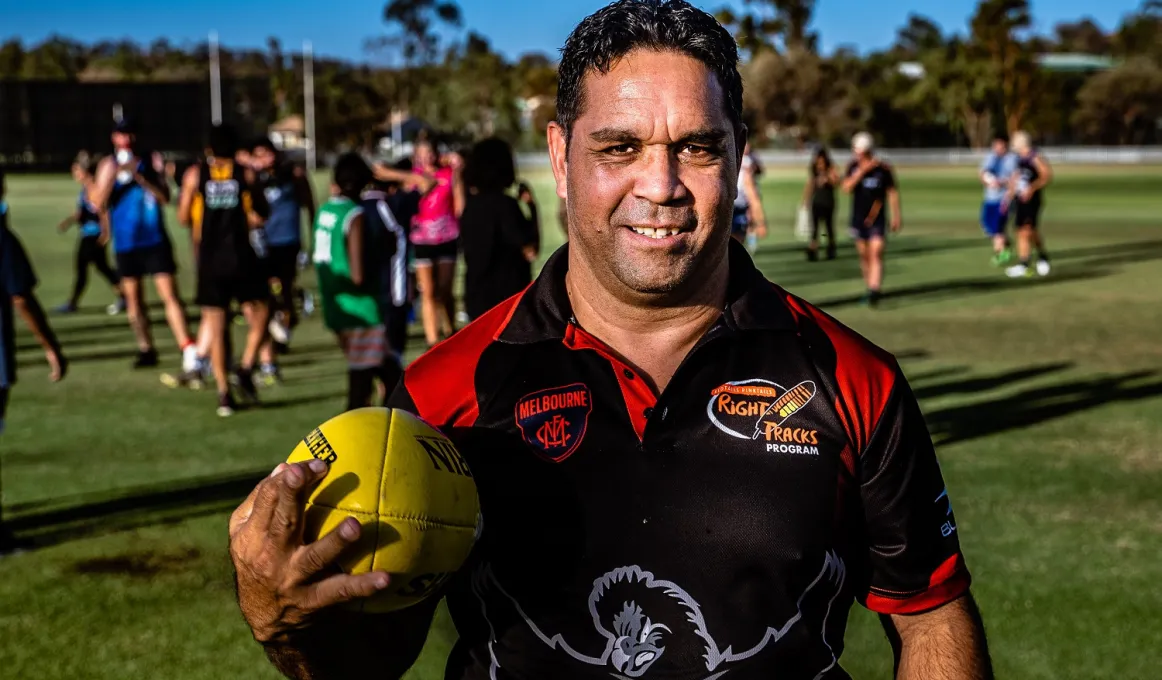Right track towards good health with a 715 health check

Right Tracks in Alice Springs, NT are using sport to encourage young people to get their annual 715 health check.
In Central Australia, the Right Tracks program is helping local young people in Alice Springs and surrounding areas to keep their health in check and create positive change.
The Aboriginal-led program, originally founded by Ian McAdam and Rob Clarke, and now run in partnership with Central Australian Football League, Central Australian Aboriginal Congress (Congress), Australian Drug Foundation (ADF).
The Right Tracks Program is designed to support young people through a targeted intensive support environment using sport as a key hook.
'There's two parts to our program: one is sport and the other side is about health. During the day, we concentrate on getting our football teams that are lined up with our program to start thinking about doing a lot of health programs with our participants,' said Ian.
As part of the program, participants complete a 715 health check with Congress, the local Aboriginal community controlled health service, or their local health clinic in some remote cases.
The annual health check is designed to support the physical, psychological and social wellbeing of Aboriginal and Torres Strait Islander people and is free at Aboriginal Medical Services and bulk billing clinics nationally.
Ian said it helps the participants to understand the benefits of good health.
'In our environment the barrier to health, and our young people accessing it, is remoteness. A lot of people that play in our footy competitions and within our teams come from remote communities, so getting support around being able to access a clinic is very important for our participants in our footy teams. Without that assistance, they just wouldn't go.'
'Right Tracks definitely encourages young people to really understand the benefits of health checks and being healthy, because it can only benefit them in their sporting careers,' said Ian.
Participant Dominic Forbes agrees, saying it helps young people overcome fear associated with going to the Doctor.
'It's not as scary as people think it is. One day at training the guys were like, "Oh, would you guys like to get a health check?" So I just put my hand up and did it,' Dominic said.
Dominic is encouraging anyone who hasn't had a health check to go and see their local Aboriginal Health Worker.
'Go get it done as soon as you can. You can see if you have anything going wrong with your body, like if you have unprotected sex, to see if you have any STIs there, or just if there's anything in your blood, to see if you're healthy or not,' said Dominic.
Aboriginal Health Practitioner at Congress, Tallira Anderson agrees.
'For anyone who hasn't had a health check, come and see one of us, the Aboriginal health workers. Everything is kept private. Come down, sit with us, have a yarn with us. Taking control of your health means a chronic disease does not have to be part of your future.'
Find out more
Further information, including resources for patients and health practitioners can be found at the Department of Health 715 check webpage.